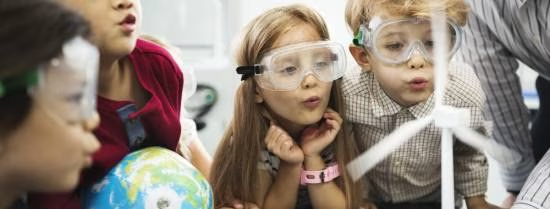
What are we researching?
Educational psychology research focuses on identifying the conditions under which people learn and perform best. In doing so, we try to understand the underlying cognitive mechanisms and investigate how this knowledge can be applied to create effective and efficient learning environments.
Why are we doing this research and how are we doing it?
An important goal of the research group is to develop practical applications for innovative and effective education. We use quantitative and qualitative research methods, both in the lab and in society, with learners of all ages.
We focus our research on new developments such as:
- Designing multimedia learning environments (combining text, video and images).
- Enriching instruction with physical movements to improve learning performance.
- Effective use of online and blended learning environments to support the learning process.
- Using data from online learning environments to personalise teaching.
- Developing and researching Apps to improve self-regulated learning.
How does our research make an impact?
For our research into guidelines for designing effective and efficient learning environments, we cooperate with various partners such as instructional designers, teachers, schools, companies and educational publishers.
In the past, these collaborations have led to the following developments in practice:
- In primary schools, physical activities are used in learning arithmetic, learning language and learning geography.
- Providing workshops for Rotterdam primary schools on what science has to say about effective instruction in reading comprehension and arithmetic (workshops for BOOR).
- Design of online learning environments, in which new techniques such as personalisation and 'nudging' are used.
- In secondary and higher education, self-regulated learning is stimulated, among other things, with a mobile application developed by us.
- Reading comprehension and strategic reading are stimulated through the use of digital media and videos in 'family literacy programmes' in collaboration with parents.
- Teachers in primary education are provided with a toolbox of instructional principles.
- Advising educational publishers on the development of online teaching materials.
- Writing a report on reading aloud for Stichting Lezen.
